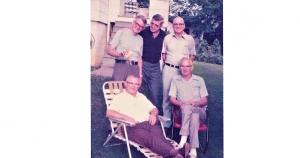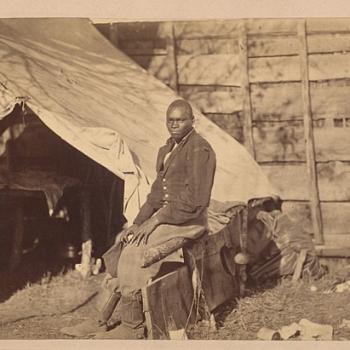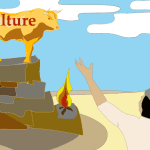What The Andy Griffith Show did for life in the South, the Dick Van Dyke Show did for the suburbs: TV showed a way that a tract home could house great things or at least great fun.
I can never take complaints about the soulless life there seriously, because I knew that Rob and Laura could make it rich. In fact, Laura Petrie loved the suburbs and if she could do it, then I could too.
Suburbs are only soulless when inhabited by people without souls and there is no reason to think suburbs attract zombies any more than the country or the city. I have known people who confused their urban address with being urbane, but were simply boors. There are rural folk who live up to the stereotypes as if they were an aspirational goal.
Suburbia done right combines the city and the country: the suburban mouse can fit well on a visit with the country or the city mouse cousins. The owner of a suburban house can sit under his own tree, next to his own vine, while being a block from good coffee and books.
The Dick Van Dyke Show showed that a hipster, a JFK loving writer and his family, could be happy in a tract home. Rob and Laura Petrie (played by national treasures Dick Van Dyke and Mary Tyler Moore) modeled hosting a party in limited space. With the right friends, and a flexible floor plan, almost anything was possible from a salon to a floor show in a thirteen-hundred square feet.
Rob Petrie wrote for a national comedy show, but he wanted to go home and be with his wife and child. Despite his “show biz” background, Rob was involved in the PTA, had dinner with his dentist neighbor, and cared about his communities values. He was in New Rochelle and of it.
Dick and Laura owned one television that could be wheeled from room to room. They spent their money on life experiences, not things. If suburbia took a different road forward, toward ostentation and away from culture, blame the commercials during the program not the Dick Van Dyke Show. If we had all done as the Petrie family did, we would have prioritized friendships, community, education, and culture.
Hope, my classical trained musician wife, thought she knew a good model when she viewed one and went out and did it.
We never found anyone as funny as Buddy, but we did have better music than even Sally could provide (looking at you Randy and Kate). We discussed Homer and did some theater. We fit hundreds of people into our house for parties.
The Dick Van Dyke Show was not the only, or even the main reason, for this, but did encourage us to aspire to make suburbia civilized.
We also learned that the chaste could be hot.
Dick and Laura were happily married and had a child, still dowdy never got near Laura’s Capris or Rob’s after dinner suit. They had separate beds, but not separate lives and one kiss had more romantic sizzle than all of late night cable.
On the show, the married people had the best times. Singleness for Sally and for all the loser men she dated was presented as less desirable than a happy marriage. This was unfair to single adults and did play into a false stereotype of single career women, but today we have gone too far in the other direction. We all want to be Sally now. On the old Dick Van Dyke Show, marriage was aspirational for both men and women and was a life affirming choice.
Married people had fun. The adult parties on the show were adult without being impious, crude, or foul: they were civilized. If Hope and I have not always lived up to the Rob and Laura standard (I lack Van Dyke’s multitude of talents) still we tried and we have known many married couples that came closer.
There was much to dislike in the naive 1960’s liberalism of the show, they needed a dose of Carrie Nation feminism, and had a hapless trust in psychological experts. However, the show often represented what Americans like about early 1960’s liberalism: racially inclusive, optimistic about the Republic, civil servants, and patriots. It is nice that the show points to literary figures, scientists, engineers, and political leaders as figures to be emulated.
If the deaths of JFK, RFK, and MLK, burning cities, and defeat in Vietnam ended that dream, good was lost with that vision. The left became counter-cultural instead of pro-culture and America has yet to recover.
The anti-heroes became heroes, writers all rebels, and morality repressive, but it was not always true. Once the left and the right agreed that education was good, schools should be strong, marriage should be honored, and civilization had fewer discontents than pleasures. Rob Petrie has vanished and nobody has come close to replacing him.
“Oh Rob!”
















